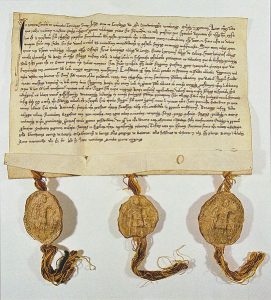Beware of Badly Drawn Documents
With the new trust law now ten months old, we are starting to see trusts being used, not just to test the concept, but to actively help clients solve their problems. This is a really positive development. The new Czech law is a good one and it helps solves many real problems for ordinary Czech people.
 What’s not so good news is that due to inexperience, many (perhaps even most?) of the Czech Trusts established so far are fatally flawed.
What’s not so good news is that due to inexperience, many (perhaps even most?) of the Czech Trusts established so far are fatally flawed.
Sometimes things can go wrong with trusts. No Trustee wants to end up in court facing claims from beneficiaries or others who are seeking to challenge the validity of a trust. Another difficulty can be when a problem comes up and the Trustee doesn’t know how to respond. Again, in this situation, a trip to court is often the only solution.
Thankfully in most common-law countries these experiences are few and far between! They do happen though and, based on our experience, they almost always happen because of badly-written trust documents. In the Czech Republic the potential for disaster is much much higher and so far many of the practitioners who have been preparing trusts seem entirely unaware if it.
In common-law countries we have hundreds of years of accumulated history and experience with trusts. More importantly, we also have extensive case law which sets out the guiding principles of trusts. In other words, the law of trusts is very detailed and comprehensive. One example is the current edition of The Law of Trusts and Equitable Obligations, a leading legal textbook on trusts written by Robert Pearce, John Stevens, and Warren Barr. This book has 1072 pages, and of course, that’s really just a summary of the key points of the law. Yet despite having access to this depth of detailed law, most common law trust professionals would not dream of establishing a trust with a trust deed shorter than twenty pages or so, and many are much longer.
This paper mountain isn’t simply based on lawyers’ built-in desire to produce long documents (long documents look more impressive and help justify higher legal fees!) Instead, all these pages of legalese are actually necessary. Even with 1072 pages of law to refer to, there are still very many ‘What if’ questions that need to be answered: What if a trustee dies? What if two trustees disagree? What if all the beneficiaries are killed in a plane crash? What if all the Trustees resign at the same time? What if a Trustee starts to act inappropriately? What if a trustee goes bankrupt? What if a beneficiary is bankrupt? What if all the trustees die in a plane crash? What if a beneficiary disagrees with a decision of a trustee? What if the founder changes his mind and wants some or all of the money back? What if the tax laws in the Czech Republic make having a trust too expensive etc etc etc.
Compare this with the situation in the Czech Republic where we have only 27 paragraphs of the Civil Code, and don’t have access to the 1072 pages of common law.
Reading the Civil Code tells us that it is possible to establish a Svěřensky fond with just two documents, a Trust Statue and a Contract, and both of these can be written on a single piece of A4 paper, and that’s the way that most Czech Trusts so far have been set up so far. But two pages of A4 is not enough to answer any of the ‘What if’ questions. In fact, the truth is that, in this country, because the Civil Code is so brief and because we have no case law to rely on, you need even more pages of documentation than in other countries.
Unfortunately that in turn means that many of the Trusts established so far are doomed to disaster. As soon as a ‘what if’ question becomes reality, these two-page trusts will end up in court. While this is probably actually good news, as it means that the Czech courts will rapidly gain some knowledge and experience with this new instrument, but it’s obviously not good news for the clients concerned.
Another factor that is critical in maintaining the integrity of trusts once they are set up it to ensure that the trust is properly and professionally administered – including the need for a Trust minute book, proper resolutions and processes for Trustee decisions. Any trust that’s run as some sort of offshoot of the Founder’s personal financial affairs is also probably doomed to fail.
There are some companies in the Czech Republic, ours included, that can prepare the documents properly. If you are considering setting up a trust, then be sure that your legal adviser knows what they are doing and if they present you with a two page document, then say ‘No Thank you”.
